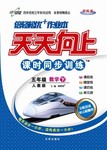题目内容
You are unhappy, ________?
- A.aren't you
- B.aren't I
- C.are you
- D.don't you

 赢在课堂名师课时计划系列答案
赢在课堂名师课时计划系列答案 天天向上课时同步训练系列答案
天天向上课时同步训练系列答案Text messaging, or simply “texting”, with allows people to send and receive messages on mobile phones, becomes very popular today.
The advantages of texting are obvious. Texting helps to save money. If you have a few words to greet your families and friends on their birthdays or on some important festivals, sending messages can be cheaper than phone calling. Texting helps to save time. Even if you want to send a message to 100 people, you can do it one second. Texting helps you to “talk” to someone when he is too busy to answer the phone. Texting can also help you to “talk” to someone secretly if you don’t want others to hear what you are talking on the phone. These advantages are so amazing that many people are crazy about it. They hold mobile phones in hands all day long, send dozens of messages each day, and even text while driving or walking.
However, texting has its disadvantages. Junk messages may come into your mobile phone box now and then. When your phone box gets too full, you can’t receive any more messages. You may therefore miss some important information.
What’s more, if you don’t do texting properly, for example texting while driving or walking, it can be dangerous. It can cause injuries and even death. It was reported that about 6,000 people were killed and half a million were injured for this reason each year. In Fort Lee, a small town in New Jersey, USA, three people died because they walked into traffic while texting in 2011. Two researchers at Stony Brook University, New York found that texters are 60% more probably to have an accident than others. When people are texting, they don’t notice other people or things around them. To reduce traffic accidents, all drivers of the UN are now not allowed to text while driving. About 32 countries have passed laws restricting the use of mobile phones while driving.
Texting is a wonderful way of communication. However, only when we use it properly, can we fully enjoy the fun it brings.
1.How many advantages of texting are mentioned in the passage?
A.Two. B. Three. C. Four. D. Five.
2.What did the researchers at Stony Brook University find?
A.Texters are easier to have an accident.
B.Texting is a good way of communication.
C.6,000 people were killed and injured.
D.Many people text to greet families and friends.
3.The underlined word restricting probably means _________.
A. not telling B. not allowing C. enjoying D. making
4.This passage is written to tell us that __________.
A. we should do less texting
B. texting has many advantages
C. texting is better than phone calling
D. we should do texting properly
What will you be doing when you are 26 years old? Studying at university or working for a living? Take a look at what Albert Einstein was doing at the age of 26.
100 years ago, Einstein was working in Switzerland. His hobby was physics. Without much money or help, he wrote five papers(论文) for a physics magazine. Three of these greatly changed the study of physics and our understanding of space, time, light and matter(物质). His most famous work is on the Theory of Relativity(相对论). Einstein was given the Nobel Prize for his discoveries. Although he also did many other things later, the years 1905 has been called Einstein’s “Year of Wonders”. It has been 100 years since then. Because of this, the UN has named 05 the World Year of Physics.
Today, over fifty years after Einstein’s death, a question is asked, “ Will there ever be another Einstein?” It may take a long time. After all, Einstein was born more than 200 years after Sir Isaac Newton, another great scientist. Besides, physics is a different field now, and education is different, too. Even if you can’t be the next great scientist, it is still helpful to remember some of the things that made Einstein great. He thought independently(独立地) and read widely. He left with us a formula(公式) for life: If A is a success in life, then A="X+Y+Z." X is work, Y is play, and Z is keeping your mouth shut.
1.The year 1905 is known as Einstein’s “Year of Wonders” because .
|
A.Einstein was working in Switzerland in 1905 |
B.Einstein was 26 years old in 1905 |
|
C.Einstein made some very important discoveries in 1905 |
D.Einstein studied physics in 1905 |
2.Why hasn’t there been another scientist as great as Einstein?
|
A.Because the study of physics is not enough. |
|
B.Because it is hard to make important discoveries as Einstein did. |
|
C.Because people don’t work hard any more. |
|
D.Because physics is getting more and more difficult. |
3.The UN has named 05 the World Year of Physics because .
|
A.Einstein is 100 years old this year |
|
B.Einstein has been dead for more than 50 years |
|
C.there have been other great discoveries after Einstein’s death |
|
D.it is the 100th year since Einstein’s “Year of Wonders” |
4. What does Einstein’s formula for life mean?
|
A.Success means years of hard work. |
|
B.Success means all study and no play. |
|
C.Success means working hard, relaxing and not talking too much. |
|
D.Success is a secret that nobody knows. |